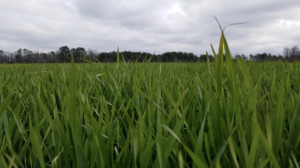
Pre-Plant Strategies for Wheat - Webinar
Are you planting wheat this fall? Join us for part 1 of our “Wheat Production Series” on September 25, 2020, from …


Extension and research at NC State address timely issues impacting our state. Extension delivers trusted information directly into the hands of farmers and agribusinesses, helping them translate knowledge into solutions that grow our economy and communities.
El inglés es el idioma de control de esta página. En la medida en que haya algún conflicto entre la traducción al inglés y la traducción, el inglés prevalece.
Al hacer clic en el enlace de traducción se activa un servicio de traducción gratuito para convertir la página al español. Al igual que con cualquier traducción por Internet, la conversión no es sensible al contexto y puede que no traduzca el texto en su significado original. NC State Extension no garantiza la exactitud del texto traducido. Por favor, tenga en cuenta que algunas aplicaciones y/o servicios pueden no funcionar como se espera cuando se traducen.
Inglês é o idioma de controle desta página. Na medida que haja algum conflito entre o texto original em Inglês e a tradução, o Inglês prevalece.
Ao clicar no link de tradução, um serviço gratuito de tradução será ativado para converter a página para o Português. Como em qualquer tradução pela internet, a conversão não é sensivel ao contexto e pode não ocorrer a tradução para o significado orginal. O serviço de Extensão da Carolina do Norte (NC State Extension) não garante a exatidão do texto traduzido. Por favor, observe que algumas funções ou serviços podem não funcionar como esperado após a tradução.
English is the controlling language of this page. To the extent there is any conflict between the English text and the translation, English controls.
Clicking on the translation link activates a free translation service to convert the page to Spanish. As with any Internet translation, the conversion is not context-sensitive and may not translate the text to its original meaning. NC State Extension does not guarantee the accuracy of the translated text. Please note that some applications and/or services may not function as expected when translated.
Collapse ▲
Are you planting wheat this fall? Join us for part 1 of our “Wheat Production Series” on September 25, 2020, from …
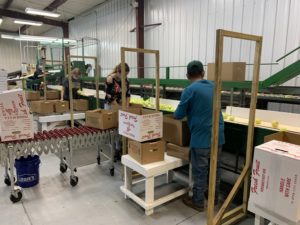
The NC State University Produce Safety Team has created training videos in English and Spanish to help farmworkers better …

Pollinator Paradise is a Demonstration Garden created by the North Carolina Cooperative Extension, Chatham County Center. Agriculture Agent Debbie …

From Chatham County Agriculture Agent Debbie Roos: Farm Visit Snapshots are a new feature on my Growing Small Farms …

What do cowboy mounted shooting, making animal feed and NC State have in common? Jennifer Harrison’s got them all …
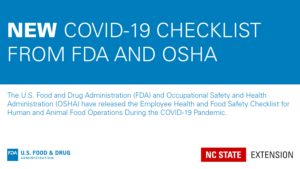
This week, the U.S. Food and Drug Administration (FDA) and Occupational Safety and Health Administration (OSHA) teamed up to …

North Carolina Agriculture Commissioner Steve Troxler just released a video all about food and feed safety. He talks FSMA and …

Are you getting started with backyard or pastured poultry? Are you interested in heritage chicken breeds? You’re in luck – …

Pollinator Paradise is a Demonstration Garden created by the North Carolina Cooperative Extension, Chatham County Center. Agriculture Agent Debbie Roos …
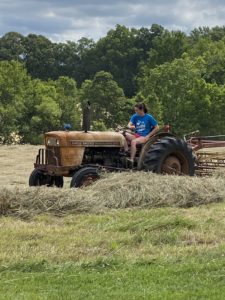
Renee Kennedy knew the beautiful farm house and 110 acres she had under contract to purchase in Pleasant Gardens, …

As if COVID-19 and Hurricane Isaias are not enough to keep all of us occupied, Asian giant hornets (aka, …

With odds increasing that Tropical Storm Isaias will hit some part of coastal North Carolina, we can expect some flooding …
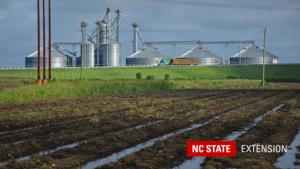
As North Carolina begins preparing for the potential landfall and impacts from Hurricane Isaias, the U.S. Food and Drug …
Sivanto Prime for control of sugarcane aphid on sweet sorghum has been approved for use in North Carolina during …

Pollinator Paradise is a Demonstration Garden created by the North Carolina Cooperative Extension, Chatham County Center. Agriculture Agent Debbie …

Are you interested in building ag communication and advocacy skills? Do you want to be a better champion for …
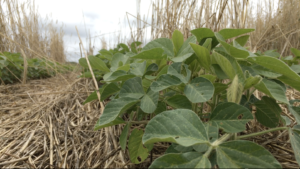
How do winter crops affect your soybean production? Sixth generation farmer and graduate student, MaKayla Gross, gives us an update …

Want to see an AquaSpy in action in a cornfield? Watch our latest video to learn about this new technology …

Pollinator Paradise is a Demonstration Garden created by the North Carolina Cooperative Extension, Chatham County Center. Agriculture Agent Debbie Roos …

Pollinator Paradise is a Demonstration Garden created by the North Carolina Cooperative Extension, Chatham County Center. Agriculture Agent Debbie …

This publication discusses Anthracnose Fruit Rot (Colletotrichum sp.) of blueberries in detail. Included are the …

This factsheet for farmers describes concepts, terminology, and guidelines concerning soil sampling. Proper testing allows …
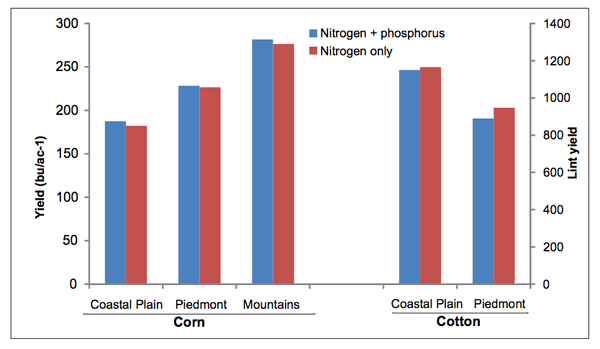
Phosphorus (P) is the second most important nutrient in crop production but is often found …
This factsheet summarizes the symptoms and management of stubby-root nematodes in soybean in North Carolina.
Lance nematode is not a common problem of soybeans, but can cause local damages in …
The reniform nematode is not a common nematode pressure for soybean growers in North Carolina, …

This soybean disease factsheet covers aerial web blight, a generally minor disease of soybean in …
This factsheet discusses bacterial blight of soybean in North Carolina.